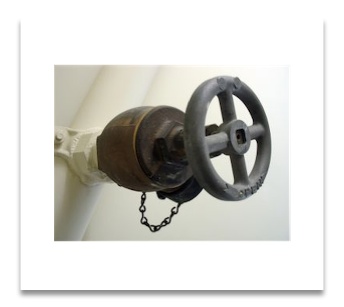 Frozen pipes can be a nightmare with flooding and major damage to your home. There are plenty of preventive measures to take in order to prevent frozen pipes, but what if your pipes do freeze, in spite of your care, or during a time when you are away from your home? What can you do? Here are some steps that you can take to keep things from becoming worse.
Frozen pipes can be a nightmare with flooding and major damage to your home. There are plenty of preventive measures to take in order to prevent frozen pipes, but what if your pipes do freeze, in spite of your care, or during a time when you are away from your home? What can you do? Here are some steps that you can take to keep things from becoming worse.
Pipes can freeze even if you are currently living in the home. Poor construction can leave pipes exposed to the elements. I learned this one time while renting a home in Connecticut. Although I had the heat on inside the home, their were pipes against an outside wall in the laundry room that were not properly insulated. As a result, the pipes not only froze but burst as well, causing major havoc.
Another time, we were away from another home in Connecticut. We hired someone to come and periodically check the house and make sure that it was warm. They filed to do so, resulting in burst pipes and extensive and expensive damage to our home.
You can find out that your pipes have frozen if you turn on the faucet and nothing comes out (in cold weather of course). Your best thing to do in this situation is to leave the faucets turned on to help relieve any built up pressure and then call a plumber. It would also be a good idea to turn off your main water value just in case the pipes have frozen.
Never use any electrical appliances in or around standing water. This could lead to electrocution!
You can warm up a frozen pipe (not burst) by using a hair dryer. To safely thaw a pipe, start at the end nearest your faucet and then work your way back.
Mary Ann Romans writes about everything related to saving money in the Frugal Blog, creating a home in the Home Blog, caring for little ones in the Baby Blog and now relationships in the Marriage Blog. You can read more of her articles by clicking here or subscribe to the blog using the subscription box on the right.
Related Articles:
Power Out and Not Prepared? Clever Emergency Solutions
Protecting Your Home from the Weather
Preventing Water Damage in Your Home

